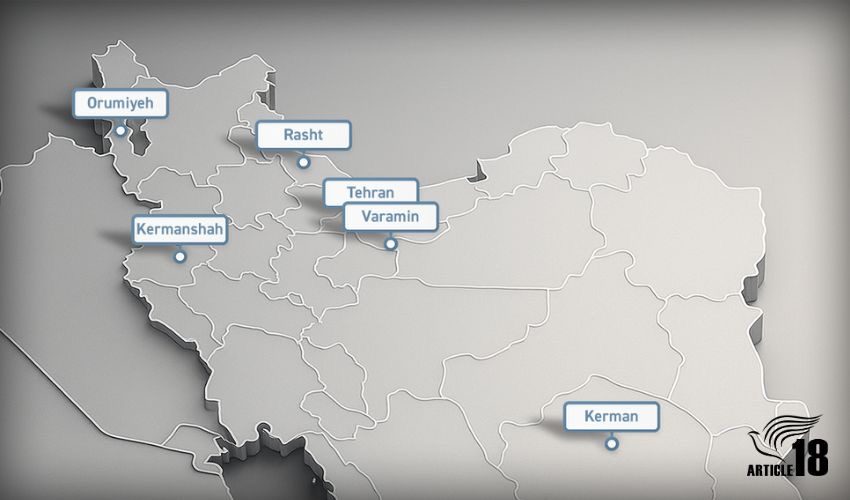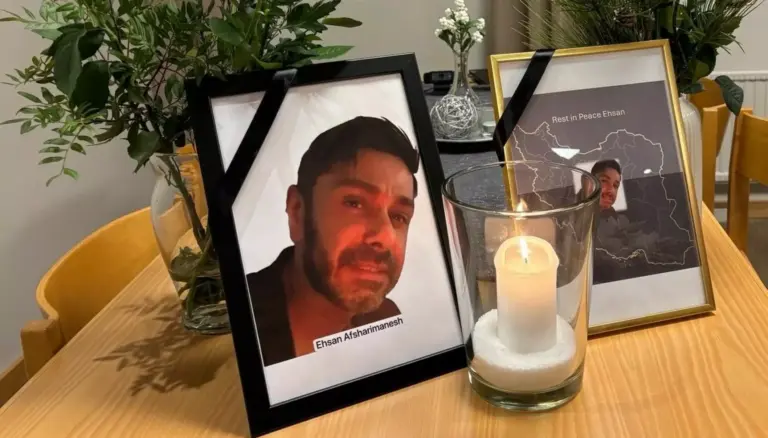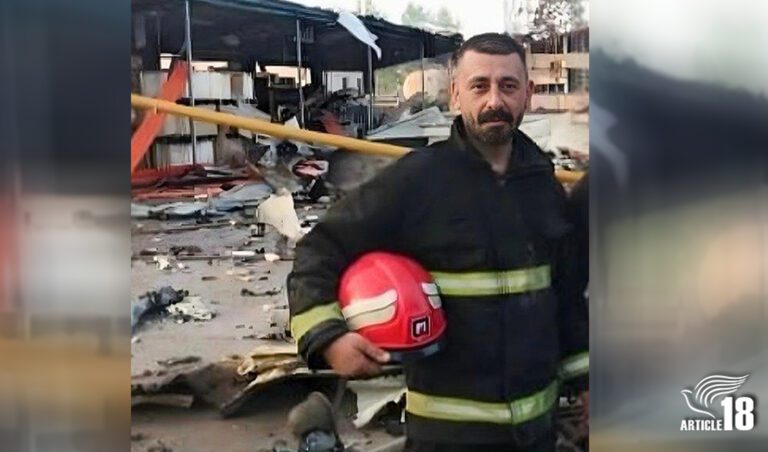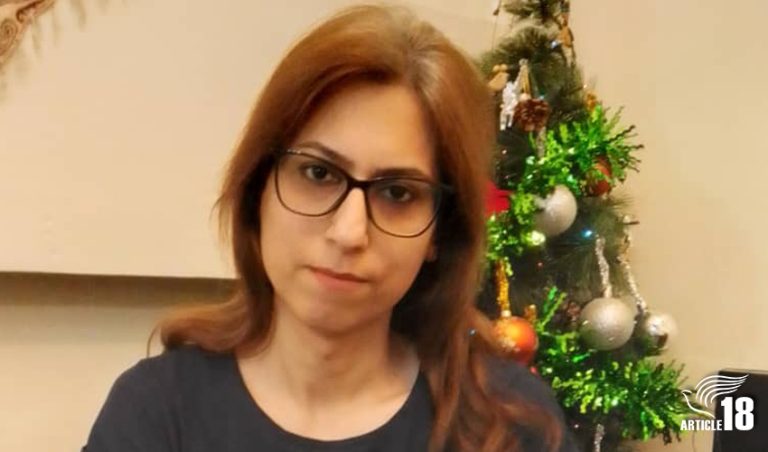
At least 21 Christians have been arrested in five different cities in the two weeks since the end of the conflict with Israel, Article18 can reveal.
The arrests by agents of Iran’s Ministry of Intelligence targeted Christians in the cities of Tehran, Rasht, Orumiyeh, Kermanshah and Varamin, while a further arrest took place in Kerman just before the conflict.
Article18 has also received multiple other reports of arrests, which we are in the process of verifying.
A group of UN experts, including the Special Rapporteur on the situation of human rights in Iran, Mai Sato, and Special Rapporteur on freedom of religion or belief, Nazila Ghanea, recently released a statement, expressing concern at the targeting of minorities since the ceasefire came into effect on 25 June.
“Hundreds of individuals, including … members of ethnic and religious minorities … have been detained on accusations of ‘collaboration’ or ‘espionage’,” they wrote. “Post-conflict situations must not be used as an opportunity to suppress dissent and increase repression.”
The precise details of the cases of the arrested Christians cannot be divulged at this stage, but some relate to the alleged possession of Bibles, while others have been threatened with charges under a newly proposed law seeking to enforce harsher punishments for those alleged to have collaborated with “hostile states” such as the United States or Israel.
In Iran, prosecutors and judges frequently label evangelical Christians as “Zionists”, “deviant” and belonging to “illegal sects”, in an attempt to distinguish between them and the tolerated Orthodox and Catholic Christians of Armenian and Assyrian descent.
In one case revealed in last year’s leaked Tehran judiciary files, a judge clearly sought to connect evangelical Christianity with the West and Israel by stating: “Evangelistic Christianity in Iran seeks to weaken the foundation of the family and … fight against the necessities of Islam, including the Islamic hijab, as well as cleansing the evils of America and especially the occupying regime of Israel.”
In their statement, the UN experts expressed concern at the “dehumanising rhetoric” used against minorities, saying they had received “reports of incitement to discrimination, hostility and violence in the media, which have labelled entire minority communities as traitors and used dehumanising language such as ‘filthy rats’”.
They also condemned the “abysmal” and “deteriorating” conditions faced by prisoners transferred in the wake of the strike on Tehran’s Evin Prison, adding that “the fate and whereabouts of some prisoners remain unknown, placing them outside the protection of the law—a situation that amounts to enforced disappearances”.
At least 11 Christians were in Evin at the time of the strike on the prison and all are believed to have been transferred to different facilities in the Tehran region, though not all have been accounted for.
One Christian convert who was among the over 60 female political prisoners transferred to Qarchak Prison has highlighted the dire conditions there.
Aida Najaflou, 43, who only remains in prison as she could not afford the exorbitant bail set for her following her arrest in February, said in a recording published by Iran International on Saturday that she and the other prisoners were transferred in “such a disgraceful manner, handcuffed”, and are now “suffering without clean water, cooling, or heating, lacking hygiene and proper food, entangled and helpless”.
Aida was one of five Christians recently charged with “gathering and collusion” and “propaganda against the Islamic Republic of Iran” in an indictment that referred to ordinary Christian acts such as praying and performing baptisms as examples of their alleged crimes. The indictment also referred to the Bible as a “prohibited book”.
Aida faces two additional charges – “propaganda activity against the Islamic Republic of Iran in the cyberspace” and “propaganda in favour of groups or organisations opposed to the Islamic Republic of Iran” – due to allegedly posting on social media in support of the “Women, Life, Freedom” protests and against the former leader of Hezbollah, Hassan Nasrallah.
The UN experts concluded their statement by saying that “following the ceasefire, the world is watching closely to see how Iranian authorities treat their own people. This will be a defining measure of the country’s commitment to human rights and the rule of law. Iran must not allow history to repeat itself by resorting to the same dark patterns of repression that have devastated its people in previous post-conflict periods.”



0 Comments